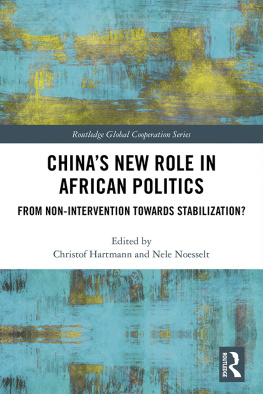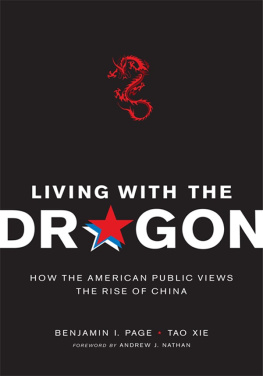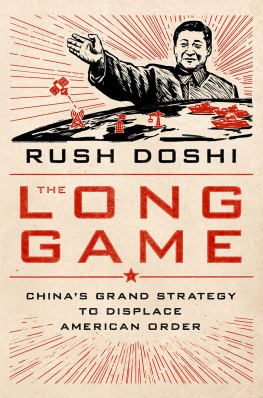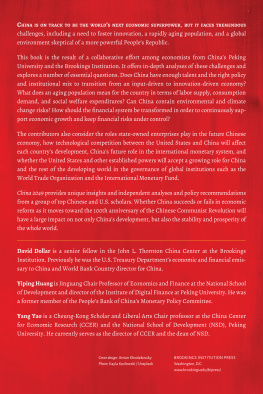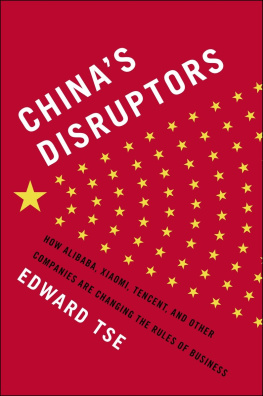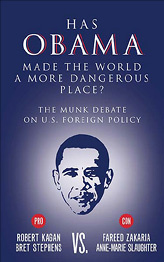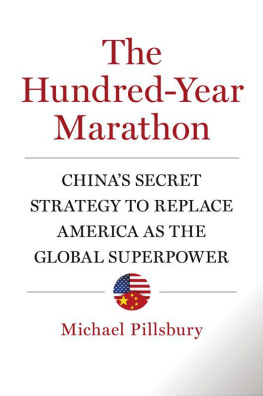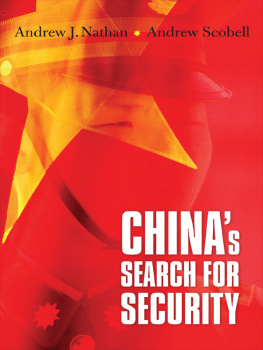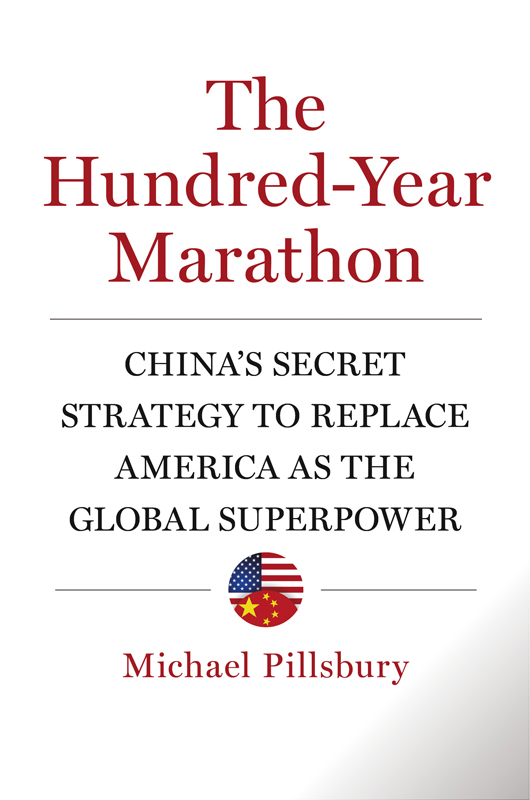Contents
Guide

The author and publisher have provided this e-book to you for your personal use only. You may not make this e-book publicly available in any way. Copyright infringement is against the law. If you believe the copy of this e-book you are reading infringes on the authors copyright, please notify the publisher at: us.macmillanusa.com/piracy.
For Susan
CONTENTS
The CIA, the FBI, the Office of the Secretary of Defense, and an agency of the Defense Department reviewed this book prior to publication to ensure that there was no disclosure of classified information. I appreciate the work of the reviewers to remove any sensitive operational details that might jeopardize methods used in the field.
Deceive the heavens to cross the ocean.
The Thirty-Six Stratagems
At noon on November 30, 2012, beneath a clear late-autumn sky, Wayne Clough, the white-bearded, affable secretary of the Smithsonian Institution, appeared before a collection of cameras and microphones. As he spoke, a cold wind blew across the National Mall. The audience stood bundled in their overcoats as a representative of Secretary of State Hillary Clinton held aloft a mysterious gold medal. The Smithsonians honored guest that day was the famed Chinese artist Cai Guo Qiang, who had been feted the night before at a tony gala inside the Sackler Gallery of the Smithsonians National Museum of Asian Artan event cohosted by my wife, Susan. Some four hundred guests, among them House minority leader Nancy Pelosi, Princess Michael of Kent, and the seventy-four-year-old widow of the shah of Iran, clinked glasses to celebrate the Chinese-American relationship and to catch a glimpse of Cai, who had won international acclaim for his awe-inspiring fireworks display during the opening ceremony of the 2008 Beijing Olympics. Cai was known to celebrate Chinese symbols with performance art, and had once used lighted fires to extend the Great Wall by ten kilometers so it could be better seen from space. Our evening gala raised more than $1 million for the Smithsonian and made the social pages of various newspapers and magazines.
The following day, as Cai was introduced, he was dressed in a Western-style suit, gray overcoat, and orange-red scarf. A trim, handsome man with graying hair, he looked out upon the Mall and the subject of his latest piece of performance art, a four-story-tall Christmas tree decorated with two thousand explosive devices.
As Cai twisted a handheld trigger, his audience watched the tree explode before their eyes, with thick black smoke emerging from the branches. Cai twisted the trigger again, and the tree exploded a second time, then a third. The five-minute display sent pine needles across the vast lawn in all directions and dense black smokesymbolizing Chinas invention of gunpowderbillowing up the faade of the Smithsonians iconic red sandstone castle. It would take two months to clean up the debris and residue left by the explosion.
I dont know if any of the guests contemplated why they were watching a Chinese artist blow up a symbol of the Christian faith in the middle of the nations capital less than a month before Christmas. In that moment, Im not sure that even I appreciated the subversion of the gesture; I clapped along with the rest of the audience. Perhaps sensing the potential controversy, a museum spokesman told the Washington Post , The work itself is not necessarily about Christmas.
Secretary Clintons aide waved the gold medal for the press corps to see, as Cai smiled modestly. He had just been given the State Departments Medal of Arts, the first of its kind, which was presented to the artist by Clinton herself, along with $250,000, courtesy of the American taxpayer. The medal was awarded, she said, for the artists contributions to the advancement of understanding and diplomacy.
I was a little suspicious and mentioned Cai the next day during a secret meeting with a senior Chinese government defector. He was incredulous at the award and explosion. We scoured the Internet. I wanted to investigate Cai and his works of art a little more closely. I didnt bother reading the English articles proclaiming Cais genius, but rather what the Chinese were saying on various Mandarin-language websites about one of their most acclaimed citizens.
Cai, it turned out, has quite a large following inside China. He was and remains arguably the most popular artist in the country, with the notable exception of Ai Weiwei. Many of Cais fans were nationalists, and applauded him for blowing up Western symbols before a Western audience. Chinas nationalists called themselves ying pai , meaning hawks or eagles. Many of these ying pai are generals and admirals and government hard-liners. Few Americans have ever met them. They are the Chinese officials and authors I know the best because since 1973 the U.S. government has instructed me to work with them. Some of my colleagues wrongly dismiss the ying pai as nuts. To me, they represent the real voice of China.
Cai and the hawks appear to be very supportive of the narrative of the decline of the United States and the rise of a strong China. (By coincidence, his given name, Guo Qiang, means strong country in Mandarin.) Cais earlier exhibits featured variations on this theme. For instance, while American soldiers were coming under nearly constant assault by IEDs in Afghanistan and Iraq, the artist simulated a car bomb explosion to ask his viewers to appreciate some kind of redeeming beauty in terrorist attacks and warfare. Even now, Chinese bloggers were enjoying the spectacle of their hero destroying a symbol of the Christian faith only a stones throw from the U.S. Capitol. The joke, it appeared, was very much on us.
Only later did I learn that the U.S. officials responsible for the payment to Cai had not known about his background or his dubious artistic strategy. I couldnt help but feel that my wife and I had also been caught unawareshappy barbarians gleefully ignorant of the deeply subversive performance taking place before us. This wasnt much different from U.S. policy toward China as a whole. Chinese leaders have persuaded many in the West to believe that Chinas rise will be peaceful and will not come at others expense, even while they adhere to a strategy that fundamentally rejects this.
* * *
We Americans still dont see China the way it sees usa condition that has persisted for decades. Why else would the Smithsonian Institution and the State Department pay a famous Chinese artist $250,000 to blow up a Christmas tree on the National Mall? The answer lies, at least in part, in an ancient proverb that says, Cross the sea in full view or, in more practical terms, Hide in plain sight. It is one of the Thirty-Six Stratagems, an essay from ancient Chinese folklore.
It is generally understood among those of us calling ourselves China experts that our lifes work is devoted to reducing misunderstandings between the United States and China. We have our work cut out for us. Americans have been wrong about China again and again, sometimes with profound consequences. In 1950, the Chinese leadership believed that it had given a clear warning to the United States that its troops should not come too close to the Chinese border during the Korean War, or China would be forced to respond in kind. No one in Washington got that message, and in November of that year Chinese troops surged across the Yalu River into North Korea, engaging U.S. troops in numerous battles before the war was halted by an armistice in 1953, after more than thirty thousand American soldiers had died. The United States also misunderstood Chinas relationship with the Soviet Union, the reasons for its overtures to the Nixon administration in the 1970s, its intentions regarding student protesters at Tiananmen Square in 1989, its decision to treat an accidental U.S. bombing of a Chinese embassy in 1999 as an act that Chinese leaders equated with the atrocities of Hitler, and more.



